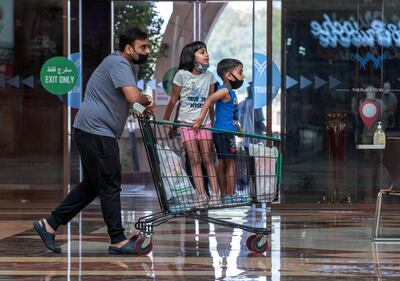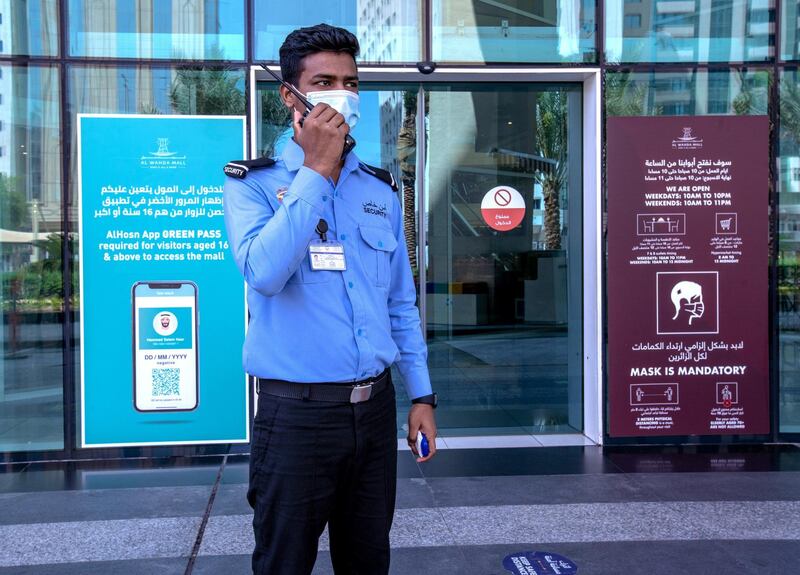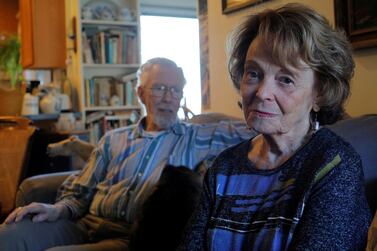The Al Hosn app outage last weekend not only served to support the truism that technology is good when it works and bad when it does not, it also provided a window onto how we are all coping with a health crisis that is now stretching into its second summer.
The National Emergency Crisis and Disaster Management Authority said a technical malfunction left the UAE's coronavirus smartphone app – which Abu Dhabi residents were required to show to gain entry to many public places – unresponsive for several hours. NCEMA apologised for the disruption to the app and suspended its use until the fault was fixed. Normal service of the app was later restored.
Many people spent hours checking news outlets for updates at the end of last week or consulting with social media and WhatsApp groups to see if it was only them experiencing issues and whether the issue had been solved. Such are the power and speed of digital networks that the official text message test result solution was disseminated quickly as a workaround to keep society moving.
Community connectivity and crowdsourcing answers of this nature have been two big success stories from the pandemic, but the episode also exposed how frayed our collective nerves are.
The outage was more of a bump in a long road rather than an insurmountable obstacle, but it may have felt far greater than that in the thick of what can now be seen as a minor glitch last weekend.
In general, despite this temporary blip, the UAE's commitment to testing and vaccinations has kept the country progressing forwards throughout the pandemic, as Dr Farida Al Hosani, executive director of infectious disease at Abu Dhabi Public Health Centre, spoke about this week.
“Testing has saved the country, with a rapid expansion of capacity from around 2,000 a day in March 2020 to hundreds of thousands of tests today,” Dr Al Hosani said at the Arab Health conference.
She went on to say that the country’s “healthcare readiness, adapting technologies, unified communication, effective collaboration and our emergency response system” had been key to crisis management since the pandemic began.
In one sample reporting period this week, more than 270,000 coronavirus tests were carried out. More than 14.5m vaccine doses have also now been administered in the country and NCEMA data shows the rate of doses per 100 people is at least 147.5.
On the economic front, a government briefing this week reported that the International Monetary Fund expects the country’s economy to grow by 3.1 per cent this year. GDP is estimated to be up by 3.6 per cent, according to the UAE Central Bank, and new company registrations grew by four per cent last year. Startups and small company growth will be crucial to recovery, so these numbers are encouraging and provide genuine cause for optimism, particularly when reconciled with the high vaccination rate and long-term commitment to testing that have been the bedrock of the pandemic response.

Other underlying indicators are also positive, and the UAE is consistently one of the top ranking countries on the Bloomberg Covid Resilience Index. But as the Al Hosn outage showed us last weekend, recovery will be accompanied by the wariness that arrives with living with such a long and complex health crisis.
Most of us don’t like dealing with uncertainty for very long – in fact, plenty of us want certainty most of the time – and that is now the biggest dragging factor of this stage of the pandemic. A year of living with the disruptive influence of Covid-19 in our midst has sent anxiety levels soaring and tolerance levels for change plummeting.
The constant requirement for all of us to adapt and be resilient, as well as to process the waves of information that arrive every day about new variants, protocols and developments, feeds a sense of uncertainty that can be hard to shake and also explains why minor setbacks start to feel like major stumbles. The long-talked-about wave of burnout may be about to come crashing in as agility becomes harder to contemplate, let alone achieve.
This week, Bumble, the Nasdaq-listed US tech company, said it would close its offices for several days to help its workers recharge and address burnout. This is a laudable initiative and one that may well be adopted by others, but only time will tell if it is a one-off gesture or a deeper commitment to tackling anxiety.
The past 16 months have been hard for many people, and especially difficult for those who have experienced loss of loved ones or livelihood or, indeed, have contracted the virus. All of us have experienced absence, loss and disruption in one way or another. It’s not surprising that there is weariness in the air.
To transition out of that mindset requires courage and clear thinking, which is hard when even simple plans to catch up with friends or loved ones require careful choreography and can easily be disrupted. The opening and closing of international borders and flight paths feeds into this same mood music of confusion and incomprehension. The settling reality that Covid-19 will be with us for a long time to come, and that the world does not look like we imagined it would this time last year, also contributes to the gloom.
But we should also reflect that the future has never been preordained. The times have always been changing, especially so in the UAE. We should also remind ourselves that recovery is well under way, even if temporary tech outages sometimes deflect the narrative.
Nick March is an assistant editor-in-chief at The National






